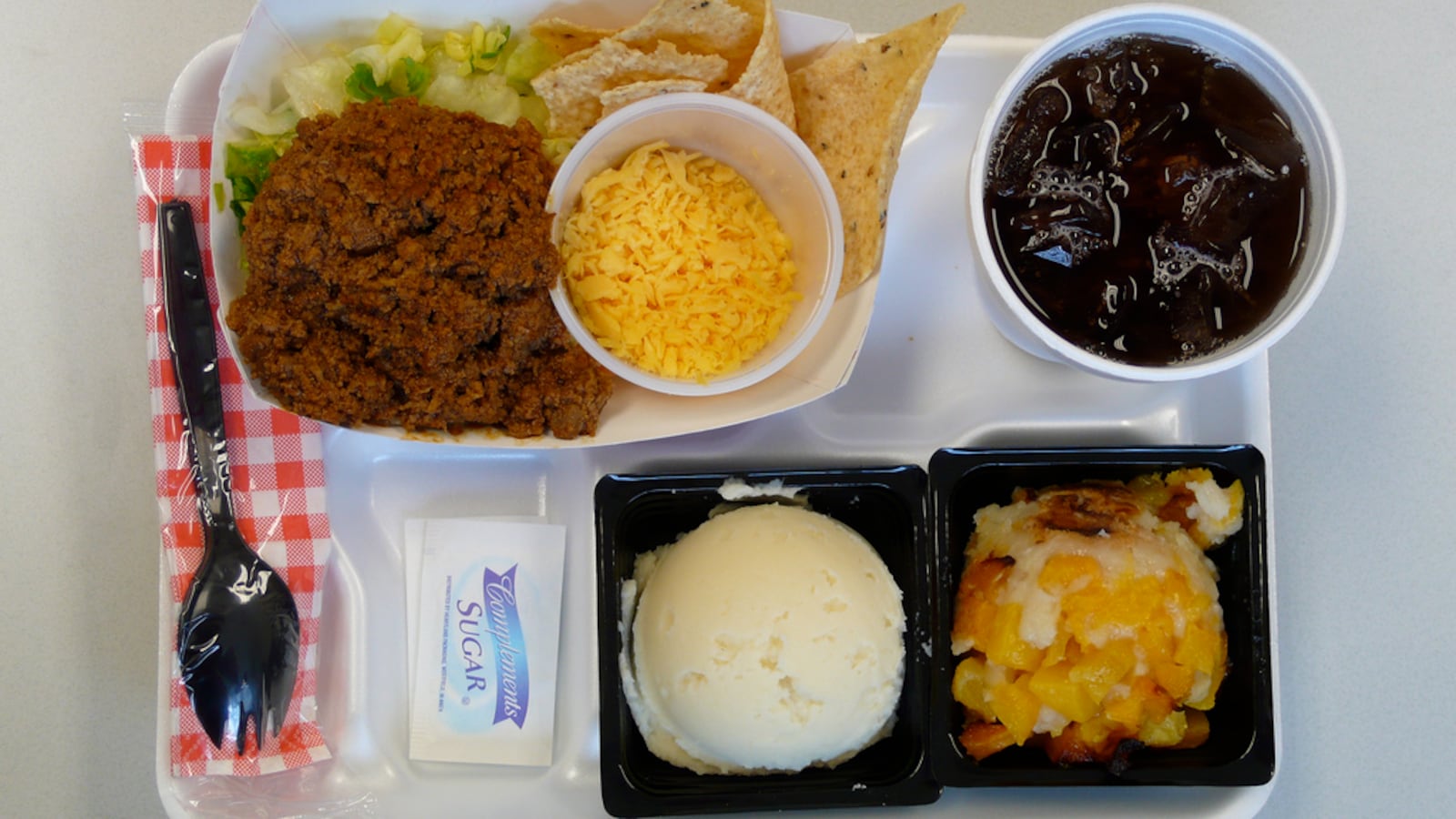Advocates have urged the city for several years to make school lunch free for all students, arguing that the current system stigmatizes those who qualify for free or reduced-price meals. Mayor Bill de Blasio’s administration has piloted free-lunch-for-all in middle schools, but has so far declined to expand the program and has cited concerns that doing so would jeopardize its federal funding. The budget he released Tuesday did not include funding for universal free lunch.
In public school cafeterias across New York City, many students play a game of hide and seek, trying desperately to be invisible. Why? Because they want to avoid being bullied by their classmates for being poor enough to qualify for free lunch, which in our world is known as “free-free.”
My name is Aminata Abdouramane, and I am in the 12th grade at the Academy of Urban Planning at the Bushwick Campus in Brooklyn. I know this game all too well, as I was once that bullied student in the cafeteria.
As a new freshman, I experienced the humiliation of having other students announce that I was in line for the “free-free.” After a week of this nonstop bullying, I begged my parents to pack me lunch. On good days, I ate my lunch by myself, away from the cafeteria. But on bad days, when my mom didn’t have money or time, I had no other choice than to go to the cafeteria and eat the “free-free.”
Now, I usually bring lunch or eat with my friends, but I still witness others getting labeled and bullied every day for being part of the free school lunch program.
None of this would happen if universal free school lunch existed, just the way it does in public schools in other cities like Chicago, Boston, Detroit, Dallas, Baltimore and Philadelphia. With all the stress of school, the last thing we need to worry about is lunch — but we do.
Here’s why: The free and reduced-price lunch program creates a social class system that is reinforced daily by the school lunch line. Some students get lunch for free, some get it for a reduced price, and some pay the whole cost.
Imagine you’re on the lunch line and another student sees you getting free lunch and takes advantage of this. I’ve seen name-calling, put downs, bullying, labeling. I’ve witnessed a boy getting bullied over getting in line for “free-free.” The bully was yelling over the entire cafeteria, “You got free-free, yo!” Once this happens, you’re immediately an outcast. Everyone knows who you are — and in a very bad way.
Can you believe that school lunch causes this? What if people are hungry? What if that lunch is the one and only meal for their whole day? What if their parents don’t have money to provide them to buy lunch? Even some of my classmates who don’t qualify for free or reduced-price lunch still can’t afford the full price. They must choose between owing money their parents don’t have or not eating lunch. Then what?
It’s almost impossible to learn when you’re walking around hungry and feeling depressed and left out. I know this is not the intention of the Department of Education, but this is what happens in our cafeterias.
Nowhere else in public schools are students separated by income. Why should this happen in our cafeteria? Using anonymous cards or numbers can help, but it doesn’t erase the problem. Everyone knows if you’re getting on the lunch line and what that means. The best way to get rid of this system is to make lunch free for all students.
This is why I have been fighting for the last three years with other New York City students and the Lunch 4 Learning campaign to make school lunch free for all students in our public schools. There is nothing standing in the way. Middle schools have had universal free school lunch since 2014 and it has not negatively affected federal funding (also known as Title I). For schools like mine, where many families are low-income, this is great news. Federal funding is very important, but we also urgently need universal free school lunch.
Students should have all the resources and nourishment they need to reach their potential. As a graduating senior of 2016, I want to make sure that my years of fighting for universal free school lunch will banish the “free-free” stigma once and for all.
Our city’s leaders have the power to do this, and I urge them to take a stand for all New York City public school students.
About our First Person series:
First Person is where Chalkbeat features personal essays by educators, students, parents, and others trying to improve public education. Read our submission guidelines here.

